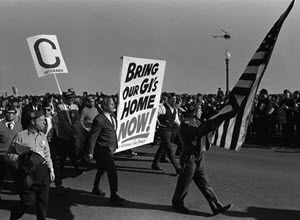
MAD and all related elements ™ & © E.C. Publications. Courtesy of DC
Nixon Started the War on Drugs. Privately, He Said Pot Was ‘Not Particularly Dangerous.’
California Sues ExxonMobil for Deceiving Public About Recycling Plastics
What’s 11,000 Times Dirtier Than a Toilet Seat?
School Lunch: Last Week Tonight with John Oliver
Hugh Taft-Morales: Racism and the Weight of History | The New York Society for Ethical Culture
I Want to Free My Mother’s Killer From Death Row
No, the world doesn’t hate America: It’s still the world’s dominant cultural power, and that’s ok
Why You Should Never Make a Major Purchase on Your Phone
Are you in the American middle class? Find out with the income calculator
10 Worst Things About The djt Presidency | Robert Reich
15 Best FREE Printable Books for Early Reading
Longtime anchor Jeff Glor and three correspondents exit CBS News in a cost-cutting move (msn.com)
What Is Jeopardy!’s Future? One day, I got a furious email from one of the show’s stars. It only got weirder from there.
“Track Meet”-starring Heather Graham for MoveOn.org (2010)
Did Frank Sinatra Really Perform at My Grandma’s High School?
Writing about vaudeville
Sciolist: A person who pretends to be knowledgeable and well-informed.
My former blog, in Polish.
MADness
“What, Me Worry” is on view at the Norman Rockwell Museum in Stockbridge, Massachusetts, through October 27, 2024. There is also an online symposium, The Usual Gang of Idiots and Other Suspects:
MAD Magazine and American Humor, on October 18 and 19. MAD magazine on CBS Sunday Morning.
Dame Maggie Smith , grande dame of stage and screen, died at 89. I only saw her in the movies The Pride of Miss Jean Brodie (1969), Travels with My Aunt (1972), California Suite (1978), A Room With A View (1985), Sister Act 1 and 2 (1992, 1993), The First Wives’ Club (1996), seven Harry Potter films (2001-2011), Gosford Park (2001), The Best (and Second Best) Exotic Marigold Hotel (2011, 2015), Quartet (2012), Downton Abbey and A New Era (2019, 2022), and The Miracle Club (2023).
Now I Know: Like Two Ships Not-Quite-Passing In the Night and Why Isdied This Football Player Sitting in the Stands? and A Different Type of Mug Shot and The Problem With Food Allergies on Mars and A Slippery Way to Win a Football Game
MUSIC
Please note: all of the links in this and other posts worked when they were created. However, there’s a dispute between YouTube and SESAC (Society of European Stage Acts and Composers), a performance-rights organization similar to ASCAP and BMI. So, certain videos are blocked until the dispute is resolved.
Rebecca Jade Rewind: Music Through the Years
Oldest Surfer on the Beach – Jimmy Buffett
Dolly Dagger – Jimi Hendrix
Elegy by Jonathan Leshnoff.
That’s The Way I’ve Always Heard It Should Be – Carly Simon
Coverville 1503: The Lynyrd Skynyrd Cover Story II and 1504: The Bruce Springsteen Cover Story IV
Polkamania! – Weird Al” Yankovic
Break It Up – Patti Smith
Romanian Rhapsody No. 1 by Georges Enescu
Titanic suite
Mutations – Nilüfer Yanya
Panic In Detroit-David Bowie
The Abyss, suite from the film’s score, by Alan Silvestri.
Highwayman – The Highwaymen –
Pleasant Valley Sunday (2024 Re-Mix) -Monkees
Revolution – MonaLisa Twins
Anyone Who Had A Heart – Shelby Lynne
Hit Me With Your Rhythm – Ian Dury and The Blockheads
Circles – Of Monsters and Men
Missing You – John Waite
Please Please Please – Sabrina Carpenter
Klingon Style (Star Trek Parody of PSY’s Gangnam Style)
Hank Green explains The Forgotten Viral Video that Could Never be Made Today. Bree Sharp’s David Duchovny
More DNC music
Nebraska — Firework – Katy Perry
Nevada — Mr. Brightside – the Killers, a rock band from Las Vegas
New Hampshire — Don’t Stop Believin’ – Journey
New Jersey — Born in the U.S.A. by the New Jersey native son Bruce Springsteen. The song has often been misread by politicians; it is not an enthusiastic celebration of American birthright but instead a conflicted protest song, with criticisms about the Vietnam War.
New Mexico — Confident – Demi Lovato; the New Mexico singer has performed at the Democratic National Convention in the past.
New York — Empire State of Mind, a duet by two New York artists — Alicia Keys and Jay-Z — that became the anthem for the New York Yankees’ 2009 World Series run.
North Carolina — Raise Up – Petey Pablo, a hip-hop artist from North Carolina.
North Dakota — Girl on Fire – Alicia Keys.
Northern Mariana Islands — Ain’t No Mountain High Enough, a Motown staple by Marvin Gaye and Tammi Terrell.
Ohio — Green Light – John Legend, the Ohio native scheduled to play a concert in Chicago after the convention’s proceedings on Tuesday night.
Oklahoma — Ain’t Going Down (Till the Sun Comes Up) -Garth Brooks, the Tulsa, Okla., country legend.
Oregon — Float On – Modest Mouse, a band born in Washington but now based in Portland, Ore.
Pennsylvania — Motownphilly by the Philadelphia group Boyz II Men, and Black and Yellow by the Pittsburgh rapper Wiz Khalifa, a staple at Pittsburgh Steelers games.
Puerto Rico — Despacito– Luis Fonsi; one of the biggest singles ever by a Puerto Rican artist.
Rhode Island — Shake It Off – Taylor Swift, who owns a home in Watch Hill, R.I.

 Richard Nixon died 30 years ago
Richard Nixon died 30 years ago  Wading through the diary, my friends, the Okie, and I were involved in various activities fighting against the war in Vietnam. Some of the references are oblique, I acknowledge.
Wading through the diary, my friends, the Okie, and I were involved in various activities fighting against the war in Vietnam. Some of the references are oblique, I acknowledge. If “Attica” is just a line you recognize from the movie
If “Attica” is just a line you recognize from the movie 
